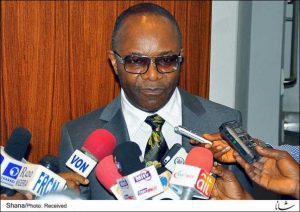 Minister of state for petroleum resources Ibe kachikwu says more than 300 billion dollars has been lost in oil investments globally in the past three years.
Minister of state for petroleum resources Ibe kachikwu says more than 300 billion dollars has been lost in oil investments globally in the past three years.
He was speaking at the opening of the Nigeria annual international conference and exhibition in lagos, where he maintained that stakeholders in the industry need to adopt new technologies to help reduce production cost and losses.
Oil producing countries have not been having a good time lately.
The period of financial uncertainty was made worse as global drop in crude prices dipped continously, causing most oil-dependent countries to re-think their economies going forward. And economic experts predicting an almost impossible comeback for many of such mono-product economies.
The minister of state for petroleum resources says Nigeria was vulnerable to the headwinds of the price drop due to a culture of inefficiency, insecurity and policy inconsistencies.
For industry regulators, the government cannot solely fund some of the infrastructure projects on their own, hence the need for a policy that encourages private sector funding of major projects in the sector.
More than 80 percent decline in world oil price was recorded between 2014 and 2016 with oil price falling between 25 dollars.
OPEC and non-OPEC members are optimistic that the planned output cut could move the price up to as much as 60 dollars per barrel.




